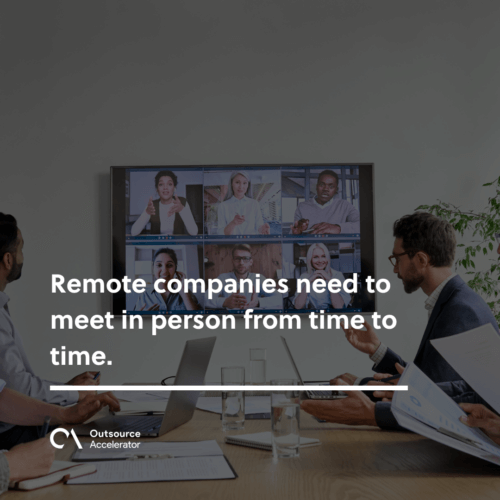Building Billion-Dollar Remote-First Companies – with Liam Martin of Running Remote and Time Doctor

Running Remote and Time Doctor
Derek Gallimore talks with Liam Martin, co-founder of Running Remote and Time Doctor. Liam is also the co-author of Running Remote, a book tackling everything about remote work from different perspectives.
In this episode, Derek and Liam discuss asynchronous work and globalized employment, especially during the pandemic, and how remote work will remain in the coming years.
The OA podcast features Liam Martin, co-founder of Time Doctor and the Running Remote conference.
Liam is also a co-author of Running Remote, a similarly-titled book that discusses remote work from different perspectives.

All about Running Remote
Liam created the Running Remote conference off of Time Doctor. It was at that time “a niche conference” where remote work enthusiasts “ended up showing every year and learning how to build billion-dollar remote companies.”
According to Liam, the world completely changed when the pandemic struck. The amount of the US workforce working remotely spiked to 45% by March 2020 from 24% in February. Even today, remote and hybrid workers account for 35% of the country’s workforce.
He considers this “the biggest [work] transition since [the] Industrial Revolution.”
Liam even felt this change through Time Doctor. According to him, a lot of people “jumped out of the woodwork” in working remotely, with their market suddenly expanding to G20 countries.
He decided that writing a book on remote work “would be the best way to communicate [to everyone]” how to do remote work successfully. In this way, he does not have to “sit someone down for six hours” to explain the concept.
What asynchronous work is all about
Remote.com CEO and pro-remote work leader Job van der Voort believes that managers “should try to avoid meetings whenever [they] can,” citing alternatives such as emails and Slack messages.
Liam explains that there are different ways to look at asynchronous work. He does not see the setup as a “black-and-white issue” but as a way to optimize employee productivity.
Companies can become more successful when more people are optimized on their workloads. He observed that constant reporting by employees could “slow down [an] organization” further. This is why managers should find ways to not be a distraction to their teams.
Liam also observes that most successful organizations make their mission paramount to their teams. Employees can “spout off their mission anytime” and show full commitment to their companies.
He added that embodying the company’s mission “[is] what excites people” more at work.
Liam on the future of cities
Liam mentioned in the book that “cities will cease to be places of work and will start to become places to live.” With this, cities that will become the best places to live “will become the most successful cities.”
Cities that recognize their potential to become a utopia for remote workers are happening now, per Liam. Tulsa, for instance, introduces a program called Tulsa Remote, where people are encouraged to move to the city for US$20,000.
Liam explains that cities looking to establish their status need “a relatively good college or university,” like De La Salle University in Manila, and “an international airport that connects to a hub” like in Hong Kong.

The future of globalized employment
In line with Thomas Friedman’s The World is Flat, Liam projects that there “would be a global income for every single [role] in the world.”
At the same time, half of the S&P 500 companies will have remote work as their primary model. Liam believes that globalized employment is a “more efficient way of extracting value outside of labor.”
Liam further explains that there are two kinds of ways of looking at globalized employment: either be fearful of the change or embrace it. He added that being an early adopter of global employment could help them gain more advantages for growth.
At the same time, Liam believes that hybrid work could create a “ two-tiered society” in return. “Distance bias,” as Liam iterates, is “well-documented inside hybrid teams” where employees that are closer to their managers have faster growth.
Though, companies can get out of this situation in the following ways.
- Communicating with managers about their biases and working to change it
- Implementing asynchronous management to “delineate the risk” of a distance bias happening
The next Running Remote conference will happen in Lisbon, Portugal, on April 25-26, 2023. Clients interested in getting a copy of the book can go to runningremotebook.com.
You can also connect with Liam in almost all forms of social media through @liamremote.







 Independent
Independent




